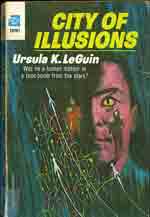 For the sake of family, we all do things during the holidays we’d rather not. One thing I did for the kids’ sake was go and see “Alvin and the Chipmunks”. They enjoyed the hell out of it, because basically there’s nothing funnier than little scurrying things making huge messes. It could have been a lot worse, and I mean that sincerely. That’s usually strong praise from me lately, as I exit the theater.
For the sake of family, we all do things during the holidays we’d rather not. One thing I did for the kids’ sake was go and see “Alvin and the Chipmunks”. They enjoyed the hell out of it, because basically there’s nothing funnier than little scurrying things making huge messes. It could have been a lot worse, and I mean that sincerely. That’s usually strong praise from me lately, as I exit the theater.
Drama needs conflict, so for this movie, David Cross plays a smarmy, ruthless record exec who turns the Chipmunks away from no-fun Dave, who insists they go to bed on time, eat right, save their money, etc. “Dave’s a drag,” the fuzzy protagonists are told, “you’re huge, you deserve to have fun all the time.” So they begin to morph into the Backstreet Boys. They get a mansion, start tour the country in silver jumpsuits, ride in limos, go to parties (thankfully there are no groupies, only fans–albeit fans with tattoos and piercings). Chipmunk fever spreads across the globe.
Do they keep it up? Are they happy that way? What do you think?
One problem with the movie is, despite the sweet message, the touring, recording and partying looks AWESOME. It’s a huge part of the storyline, takes up a lot of minutes, and a lot of effort was put into making it look realistic. There’s no indication at all that the Chipmunks aren’t having the time of their lives, until the requisite time when one of them says, “I miss Dave, we should go home.” Following that are some action sequences of Dave trying to rescue them, slam bang, haha, all’s well that ends well. Hollywood hype and showbiz values don’t stand a chance against the simple pleasures of home.
Except, of course, the movie makes those showbiz values looks completely marvelous. The tinny insincerity made a likeable movie completely senseless. It’s no big revelation, but it makes me wonder about the nature of communication. How do values get transmitted? Why should any of us for a second believe a product of Hollywood that rejects Hollywood values? How can any screenwriter or director or producer arrive with a movie that tells us that Hollywood values are destructive, when all their lives these people have striven to attain the fruits of those values? Why doesn’t someone’s head explode at some point? THAT would be entertaining.
Alone among art forms, movies and television are a product of a certain place. Books can be written anywhere, music erupts in unpredictable places and with luck the musicians stay true to their native muses even after they end up in LA. But movies and TV come from Hollywood, a ‘little town” according to everyone who works there. And Hollywood runs on Hollywood values–live fast, trade up, project an image, spend spend spend, don’t be seen with anyone who’ll pull you down, product is king.
It takes certain skills to put out a TV show, among them monomania and the ability to work 18 hour days. The goal is to create a good show and a gazillion dollars, and if push comes to shove, the gazillion dollars wins. It stands to reason that this mindset of the world will shape the stories the creators bring to the public. (I would argue the shows of unique quality–Seinfeld, The Sopranos–somehow transcend this mindset and bring us something else, something other, while the basic crap on TV runs on nothing but the Hollywood mindset. It reminds me of the TV development exec who told me that my first step if I wanted to write for TV was “watch a lotta, lotta TV.” The treatment is worse than the disease.) It’s no wonder that so many millions of young people believe that the key to happiness is to become famous. The Hollywood machine doesn’t just deliver messages–it IS the message. Fabulousness is all.
Having “Alvin and the Chipmunks” tell me that only family can bring me happiness is like having Dylan Thomas tell me that only a well-tempered life will bring satisfaction. It’s enough cognitive dissonance to induce a headache, even more than the speeded-up version of “The Witch Doctor Song.” Yet another reason to set EXTREME limits on how much Hollywood product your kids consume. (As well as yourself. When the “Hannah Montana” express rolled through Chicago last month, it was the adults–NOT the kids, as every newspaper story specifically pointed out–who paid $800 a ticket, called the radio stations, sold their souls for the latest thing. )


That second-to-last paragraph is genius, Garner.
Please do me a favor: write this up as a for-reals for some MSM pub, or salon or huffpo or slate or whatever it is the smart writers are doing.
Even stumbled and clipped (both done), this needs life beyond these borders.
Ho-ho-hold on there, Missy. Genius? I love the stroke, but I think these ramblings were the result of too much coffee.
The point about the mindset creating the world, however, still holds. It was also true of the old studio moguls, immigrants who wanted to believe in America’s promise so badly that they created (with the help of writers and directors) the visualization of an America where that promise works. Goldberg didn’t make movies that trumpeted individual effort and the value of democracy, then say, “Ah, but life back in the shtetl in Russia–THAT was true happiness.”